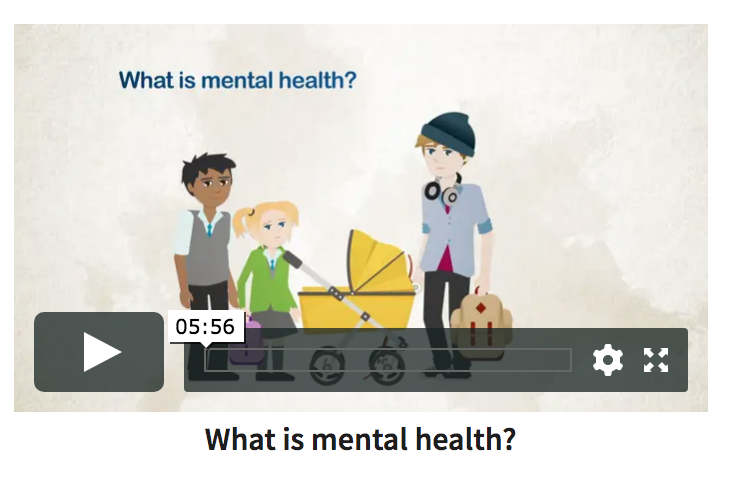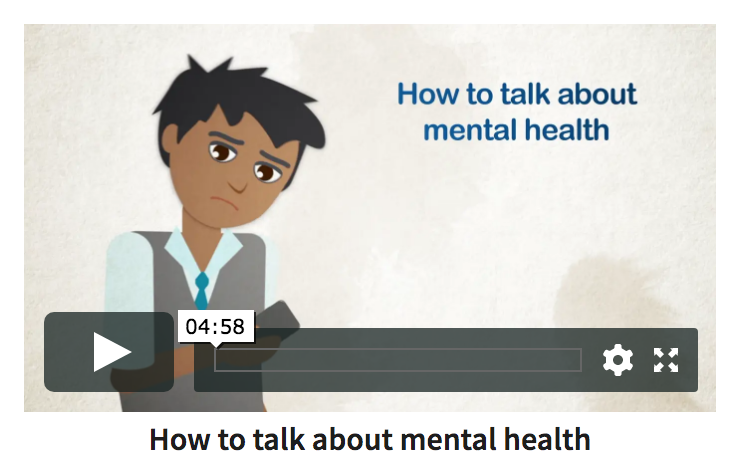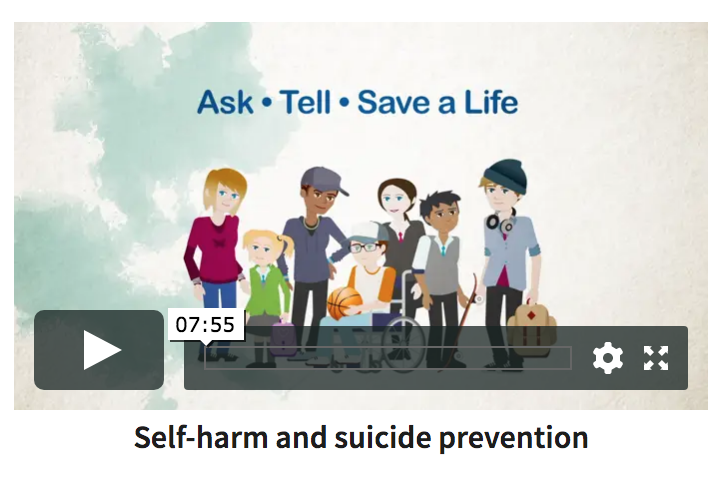NHS Education Scotland and Public Health Scotland have created three animations as part of their ‘Suicide Prevention Action Plan – Every Life Matters’ Strategy.
“These animations are designed to support learning about mental health, self-harm and suicide prevention specifically for the wider Children and Young Peoples workforce at the informed level”
What is mental health?
“We all have mental health. And everyone has a part to play in supporting Children and Young People’s mental health and keeping them safe.”

- Every child and young person is different – difference experiences through life can influence mental health both positively and negatively
- Mental health affects how we think, feel and make choices
- You can nurture positive mental health in children and young people though encouragement to build confidence and self-esteem
- Take time to familiarise yourself with the schools policies to promote positive mental health
- One supportive and trusted adult can help a young person cope with life’s challenges
How to Talk about Mental Health Ask, be kind, acknowledge feelings, take the child or young person seriously
Ask, be kind, acknowledge feelings, take the child or young person seriously
- Create the right environment e.g. going on a walk means you do not have to make eye contact
- Set a clear time, make sure the child or young person knows how long they have
- Involve the child or young person in decision making, encourage them and support them
Self Harm and Suicide Prevention

- Self harm does not necessarily mean the child or young person wants to die, it could be a way of coping or communicating the pain that they feel internally e.g. anxiety, guilt, low self-esteem, anger, shame and fear of failure
- The risk of suicide increases when self harm is used as a coping strategy over a long period of time
- Always take self-harm serious – help the child or young person get the right support
- If you are worried about a child or young person harming themselves:
- Talk to them about it
- Recognise their feelings are real
- Validate the persons experience
- Anyone of any age can have thoughts of suicide
- If you are worried about a child or young person having suicidal thoughts:
- Ask them
- Openly listen and discuss the young persons feelings and thoughts of suicide
- Don’t assume someone else has asked
- React with compassion, understanding and kindness
- You don’t have to have specialised knowledge, the best way to let someone know you care is to start a conversation:
- Ask open ended questions
- Show you are actively listening to their response
- Be direct in a caring and supportive way
- Be ALERT
- A sk
- L isten
- E ncourage
- R ight now
- T ell someone
- By working together we can all support a child or young person
- Find someone to talk to about your own feelings, you do not need to go through this alone

